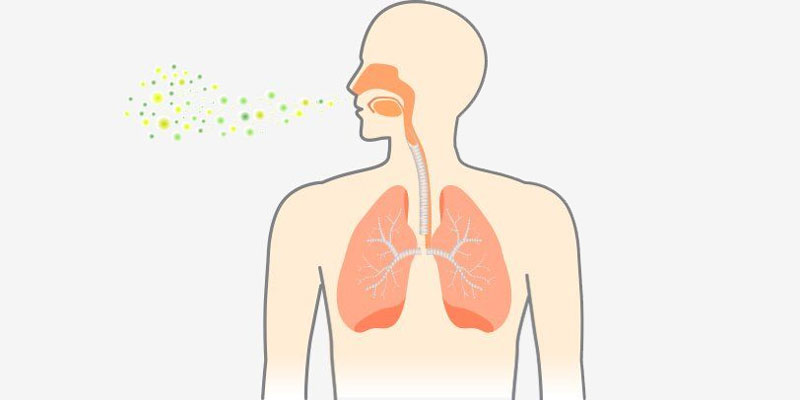
Double pneumonia is the medical term for when both of a person's lungs get infected with pneumonia. Those who have the flu (an illness caused by the influenza virus), some forms of streptococcal bacterial infections, the respiratory syncytial virus (RSV), and people with certain other diseases have a higher risk of developing double pneumonia. When a person has double pneumonia, both of their lungs are affected, which may make it very difficult for them to breathe

Symptoms
Based on symptoms alone, it is not feasible to determine whether or not a person has pneumonia or double pneumonia. Anyone who suspects they may have pneumonia should be checked out as soon as possible by a medical professional. Pneumonia is often acquired either after another respiratory infection or along with it. People may also develop pneumonia after breathing in dust or certain gases or obtaining fluid in their lungs. This can happen after exposure to dust or acquiring juice in their lungs. These conditions make it more likely that a pathogen may infect a person by entering their body undetected and causing an infection.
Individuals with these risk factors for pneumonia should look for signs of the illness. These symptoms consist of the following:
- A very high temperature chills, or trembling. Occasionally, certain people will experience a temperature significantly lower than normal.
- A cough that seems to be getting worse.
- You are bringing up heavy mucus or phlegm with your cough.
- Pain in the chest that is aggravated by coughing or inhaling.
- After recovering from an acute viral disease, such as the flu or another respiratory infection, feeling unwell is a common side effect.
Complications
When pneumonia worsens, it may lead to several dangerous consequences, which are more likely to occur in patients with compromised immune systems due to age, sickness, or chronic conditions such as HIV or AIDS.

Among the complications of pneumonia are the following:
- Sepsis is an illness that may cause inflammation throughout the body at several sites. It is a dangerous disease that sometimes results in death.
- Lung abscesses.
- Pleural effusions. The pleurae are two membranes that line the outside of the lungs inside the chest cavity. These membranes are located within the pleural space. In a normal person, the distance between the membranes is filled with a little quantity of pleural fluid; nevertheless, pneumonia may lead to a buildup of this fluid. Pleural effusion may be fatal if there is an accumulation of fluid or if it gets infected. Both of these scenarios are possible.
- Pleurisy. This is a potential complication of pneumonia that takes place when the pleural layers become irritated and rub against one another. People with pleurisy will feel discomfort in their chest whenever they take a big breath or cough.
- Failure of the kidneys or the breathing system.
Causes OF Double Pneumonia
Being over 65, having asthma, and having just recovered from a viral illness are all factors that might raise the likelihood of getting double pneumonia. Pneumonia is most often brought on by an infection brought on by bacteria or viruses that have made their way deep into the lungs. When individuals breathe in specific fungus, they have a slightly increased risk of developing pneumonia. The following are some of the possible causes of pneumonia and double pneumonia:

Bacteria:
The majority of adult cases of pneumonia are due to bacterial infections.
Virus:
In infants and young children, RSV is the infectious agent that often causes viral pneumonia. When a person has viral pneumonia, their chance of developing bacterial pneumonia as a subsequent illness is increased.
Fungus:
Other, less prevalent conditions may also cause pneumonia. A person whose immune system is weakened is often at a greater risk for developing fungal pneumonia in comparison to a person whose immune system is healthy and functioning normally. Some individuals are more prone to pneumonia. The following are some of the risk factors for double pneumonia:
- It is being young.
- Malnourishment.
- Tobacco use as an activity.
- Having a long-term condition, such as congestive heart failure, for example.
Various Possibilities for Treatment
Treatment for double pneumonia is dependent on the underlying cause of the condition as well as the body's response to it:
- Antibiotic treatment is required for those who have been diagnosed with bacterial pneumonia.
- Patients suffering from serious infections associated with pneumonia, such as infected pleural effusion or sepsis, would need antimicrobial treatment administered by intravenous means. You may need other sorts of therapy as well.



